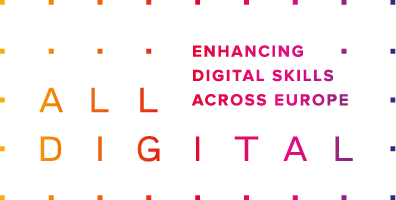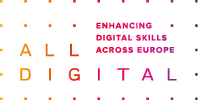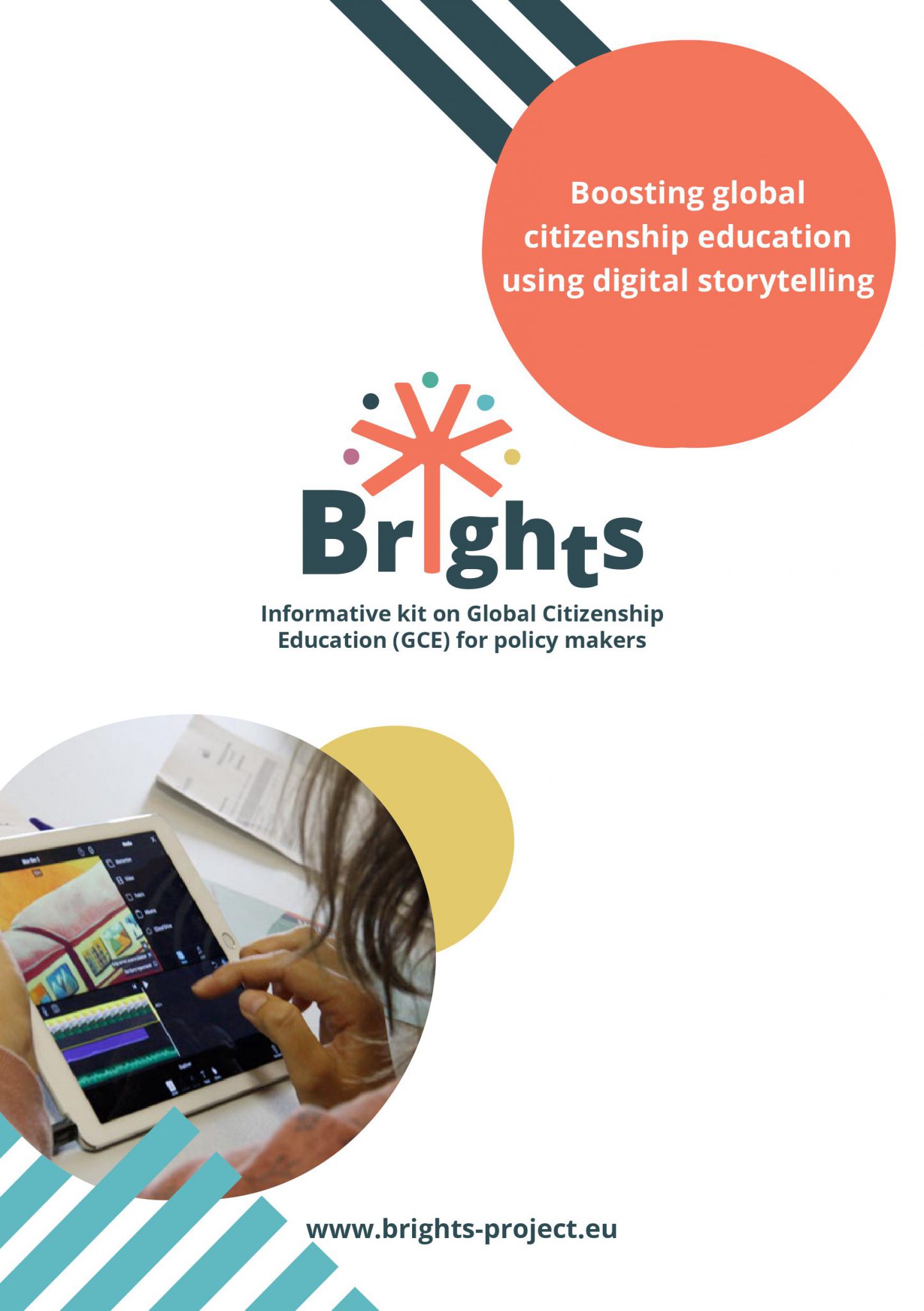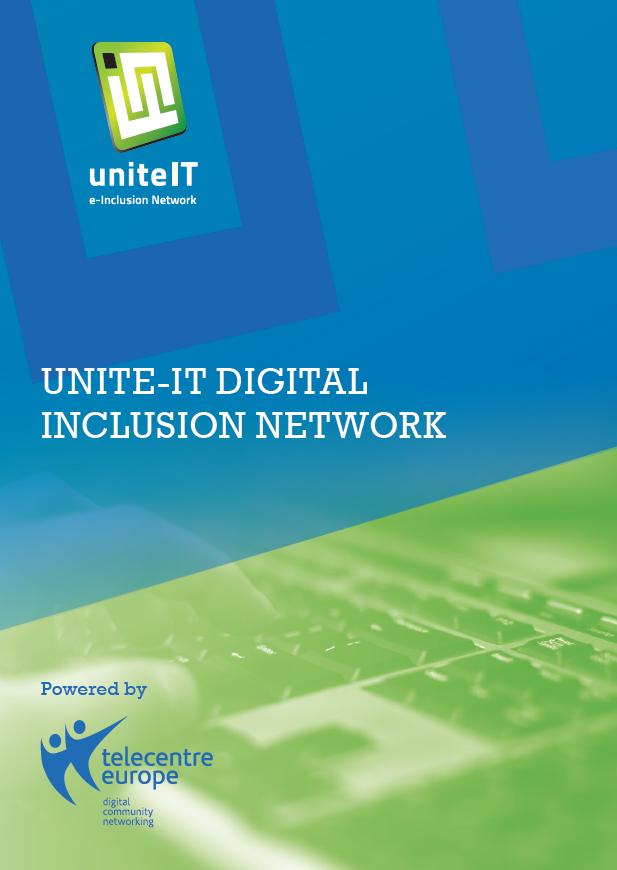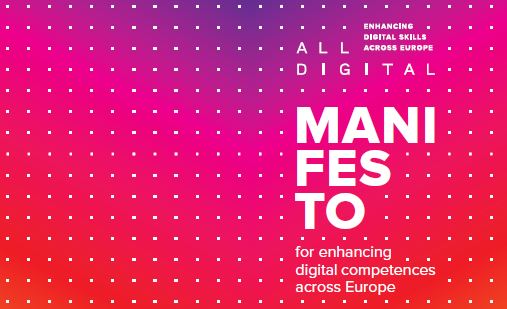
28 Apr Manifesto for Enhancing Digital Competences Across Europe
28 Apr, 2021

See Manifesto (2021 version) in English in .pdf
Introduction
Digital competences are essential to how we live, learn and work. The confident and critical use of digital technology
is key to supporting lifelong learning, active citizenship, employability, and inclusion. Citizens can wield their
digital competences to access information and support, access new learning and employment opportunities, be creative and
entrepreneurial, find new opportunities and to help others.
To deliver on this potential ALL DIGITAL has worked with our network of digital competence centres and stakeholders on a
new version of the ‘Manifesto for enhancing digital competences in Europe’.
The Manifesto sets out key principles and recommendations on how to maximise the impact of education and training in
digital competences for all European citizens.
Digital skills and jobs are a key action area in the EU’s digital strategy (2019 – 2024) and the 2030 Digital
Compass supported by a variety of initiatives announced as part of the European Skills
Agenda, European Education Area and Digital Education Action Plan. The Manifesto seeks to
contribute to dialogue, implementation, and co-operation on these and other actions to deliver Europe’s digital
future; its realisation is a strategic priority of ALL DIGITAL.
At the core of the Manifesto is the belief that education and training in digital competences in Europe must become more
consistent and cohesive.
The Manifesto calls on EU institutions, Member States, and stakeholder organisations, as well as ALL DIGITAL and its
members, to take action and find new ways to co-operate at EU, national, regional and local level to deliver on the
ambition of this Manifesto.
This Manifesto includes key principles and recommendations under 5 main areas:
1. The education and training offer
| Relevant | Education and training in digital competences should be designed to reflect the needs of people, the labour market and society. Course content must be underpinned by instructional design and skills intelligence on new and emerging trends in jobs and sectors that deliver relevant, personalised learning opportunities. |
| Holistic | Digital competences must be understood and developed in combination with other key competences, such as entrepreneurial and ‘green’ competences, that are essential for ‘personal fulfilment, a healthy and sustainable lifestyle, employability, active citizenship, and social inclusion’ [Source]. Digital competence courses must provide a holistic training experience, including competences to support employability and career progression as well as key skills for life such as communication and collaboration. Courses should also promote the importance of ethics, sustainability and safety as key aspects of digital competence. |
| Transforming | Digital competence education and training must continually evolve in line with the digital transformation of our society and economy. This evolution will enable more inclusive education and training systems and labour markets as well as innovation and competitiveness. |
| Lifelong | Digital competence development should be recognised as part of lifelong learning pathways across formal, non-formal and informal learning settings.ALL DIGITAL welcomes the action announced by the EU Commission to explore use of Individual Learning Accounts. Such accounts could offer a viable way to support the adult workforce to access financial support and accumulate training rights. It is essential that Individual Learning Accounts support development of non-formal learning, including digital competences. |
| Creative | Digital education and training should encourage the development of competencies needed to create quality digital content, such as computer code or multimedia story. This would strengthen citizens’ ability to become active participants in creating solutions for social challenges and power users of new creative opportunities. Both producers and users of digital content must be equipped with the skills of critical thinking and attitudes of responsible content sharing, which is the essence of media literacy as one of the key competencies in a digital society. |
2. Access to education and training
| Available |
Citizens must be afforded every opportunity, support, and There should be sufficient provision of education and training in the |
| Flexible |
Differing learning approaches (blended, on-line, in-person), learning ALL DIGITAL welcomes the action announced by the EU Commission to develop a |
| Inclusive |
Design and delivery of education and training in digital Such education and training must ensure equality of opportunity for both |
| Universal |
The design of online learning content must adhere to web accessibility |
3. Quality of education and training
| Systematic |
Digital competences are fundamental to delivering on the European Pillar of Social Rights, including the first |
| Measured |
Learning outcomes should underpin design and delivery of digital |
| Qualified | Education and training should be offered by recognised educational and training organisations and delivered by qualified trainers / educators. Educational and training organisations should employ and support suitably qualified staff and put in place sufficient resources to ensure the ongoing professional development and upskilling of staff. |
| Competitive | The European Union must ensure globally competitive digital education and training of the highest quality, which will retain young talents, help develop e-leadership and digital entrepreneurship, and attract investments in the sustainable development of Europe’s digital and green economy |
4. A European approach to digital competence
| DigComp: the European Digital Competence Framework |
DigComp: the European Digital Competence Framework should |
| Certification |
ALL DIGITAL welcomes the action announced by the EU Commission to ALL DIGITAL will leverage its position as an EU-wide network to play a role |
| Communication |
A coherent approach to digital competences can only be achieved by ALL DIGITAL calls on the European Commission to develop a ‘Digital The profile could be used in Europass, Individual Learning Accounts, ESCO and the EU |
| Recognition and Mobility |
Technology should be leveraged to support the recognition and mobility of |
5. Sustainability and development
| Collaboration |
Stakeholders from industry, society and education and training must |
| Infrastructure |
Digital competence development requires an ‘all-government’ approach that Digital competences must be recognised as an integral part of National tools and services, such as employment services, e-Government |
| Investment |
Appropriate investment is necessary to ensure that every European |
| Governance |
The topic of digital competence is a broad ranging area that involves many |
We invite organisations working in the field of digital skills to ENDORSE THE MANIFESTO
